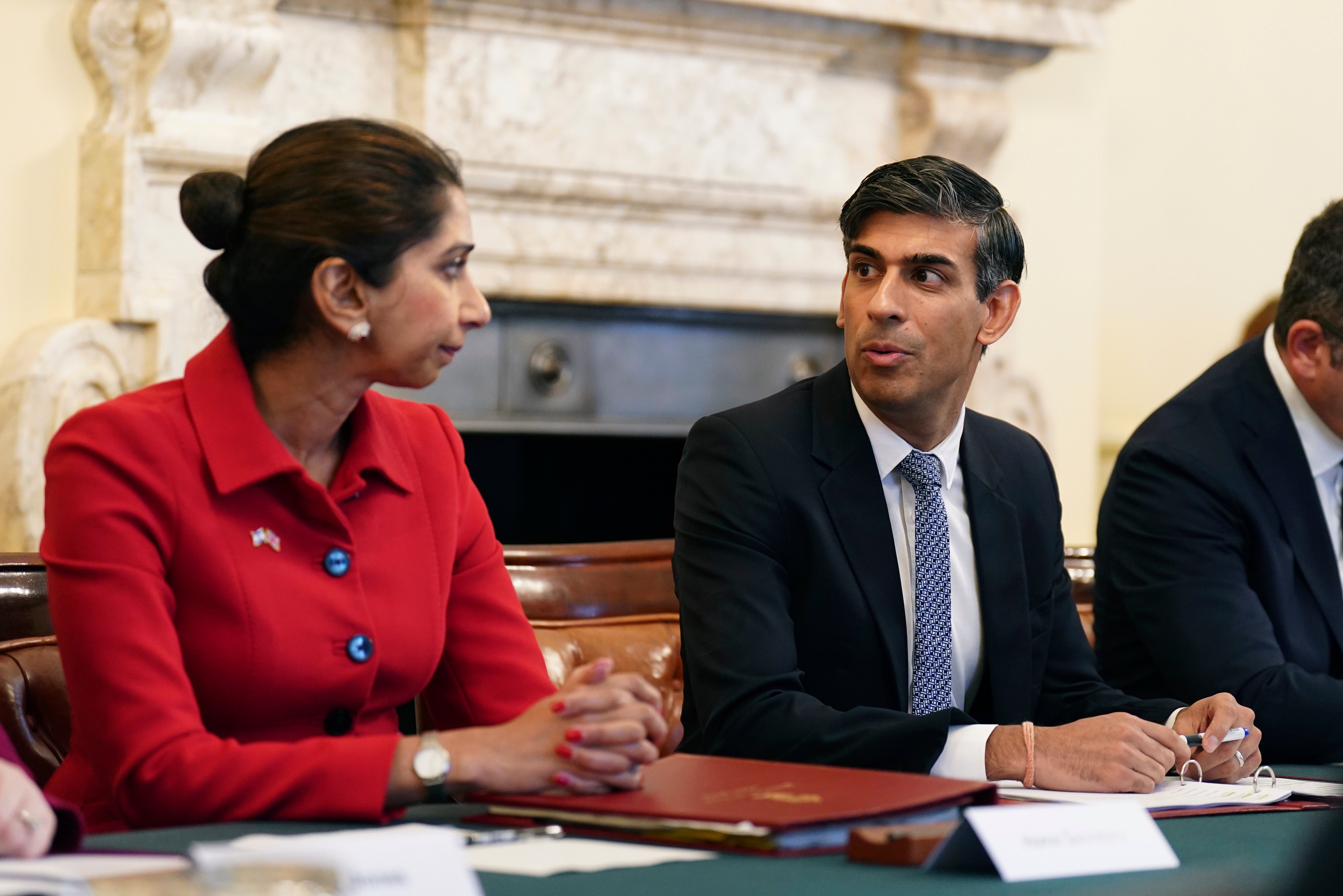Michael Gove admits housing crisis is even worse than you think
High immigration putting ‘more pressure’ on Britain’s housing, says levelling up secretary amid cabinet row
Your support helps us to tell the story
From reproductive rights to climate change to Big Tech, The Independent is on the ground when the story is developing. Whether it's investigating the financials of Elon Musk's pro-Trump PAC or producing our latest documentary, 'The A Word', which shines a light on the American women fighting for reproductive rights, we know how important it is to parse out the facts from the messaging.
At such a critical moment in US history, we need reporters on the ground. Your donation allows us to keep sending journalists to speak to both sides of the story.
The Independent is trusted by Americans across the entire political spectrum. And unlike many other quality news outlets, we choose not to lock Americans out of our reporting and analysis with paywalls. We believe quality journalism should be available to everyone, paid for by those who can afford it.
Your support makes all the difference.Michael Gove has admitted that Britain’s housing crisis is even “worse” than widely believed, as he waded into the cabinet row over immigration.
The levelling up secretary suggested that the UK does not have enough homes to cope with record-high net migration levels.
Mr Gove also admitted that governments “have not built enough homes overall for generations”, as Britain continues to suffer from an acute shortage.
The astonishing admission comes as his close cabinet ally Kemi Badenoch said she was “pushing” for Rishi Sunak to take “much tougher measures” to get net migration down.
The business secretary added to pressure on the PM, after sacked home secretary Suella Braverman’s camp revealed details of an alleged pact with Mr Sunak to crackdown on visa numbers.
And The Independent understands a response to the record-high migration figures has been delayed by different departments continuing to argue about how far Mr Sunak should go with a crackdown on visas.
Asked if housing levels were not enough to cope with rising immigration levels, Mr Gove told Times Radio: “Yes. In fact, I think actually the situation is, if anything, worse than you depict.”
Mr Gove added: “It is the case that the migratory flows put more pressure on housing, but we haven’t built enough homes overall for generations.”
With record net migration of 745,000 in 2022, the government would need to massively increase housebuilding and significantly reduce immigration to meet the challenge, the levelling up secretary said.
“I think we need to do both,” said Mr Gove. “I think it’s important when we’re looking at the migration figures to recognise that some of these figures are students, some of these figures are Ukrainian refugees, some of them are British nationals from Hong Kong.”

“But you are right, we do need to bring migration down. And you’re also correct, we do need to build more homes,” he added.
Mr Gove claimed that the Tory government would hit its target of a million new homes in this parliament – even though the party had ditched it previous manifesto promise of 300,000 a year.
The levelling up secretary said he was “absolutely confident” his leasehold reform bill – to be introduced in parliament later – would pass before the general election.
New houses in England and Wales will be freehold from the outset. But campaigners have expressed concern that the sale and purchase of leasehold flats will still not be banned.
The standard lease extension term will be increased from 90 years to 990 years for both houses and flats, with ground rent reduced to £0.
This will ensure that leaseholders can enjoy secure ground rent-free ownership of their properties for years to come, without the hassle and expense of future lease extensions.
Meanwhile, Ms Badenoch, the business secretary, said she wanted Mr Sunak to do “whatever it takes” to bring down net migration. “I certainly will be pushing for the strongest measures possible,” she told LBC.

It comes as Ms Braverman’s camp revealed details of a “secret” four-point migration plan Mr Sunak is said to have agreed with her as he sought her support to become PM last year.
He promised to raise the salary threshold for migrants to £40,000 as part of a series of measures to bring down migration, Ms Braverman’s allies said.
Other parts of the plan included closing down the graduate visa route, restricting the number of dependents migrants can bring to the UK and prioritising overseas students applying for Russell Group universities.
Grilled on Ms Braverman’s claims of broken promises, the PM’s official spokesman said No 10 does not “recognise that characterisation” of deals made during the leadership bid.
No 10 also said on Monday that the Rwanda asylum plan is not a “silver bullet” in stopping Channel crossings, amid right-wing Tory unease about home secretary James Cleverly’s comment that the deportation plan is not the “be all and end all”.
Downing Street declined to set out a timeline of new Rwanda legislation or a revised treaty with the central African country – saying it would be “weeks” away despite Mr Cleverly’s previous claim it would be “days”.
It follows reports Rwanda was refusing to sign a treaty that would include British officials’ involvement in its legal system.
Despite being close political allies, Ms Badenoch reportedly fell out with Ms Gove over an alleged affair with one of her friends. A source told The Times it caused a “significant deterioration” between the two cabinet colleagues.
Join our commenting forum
Join thought-provoking conversations, follow other Independent readers and see their replies
0Comments